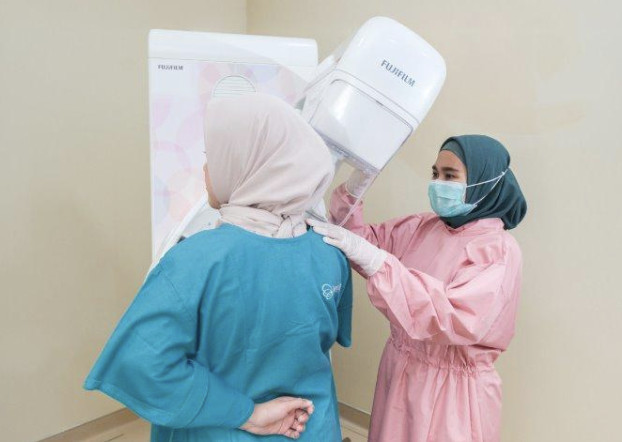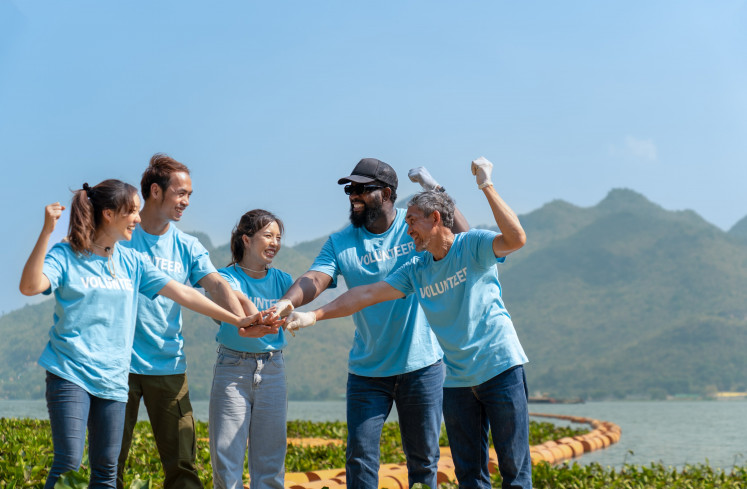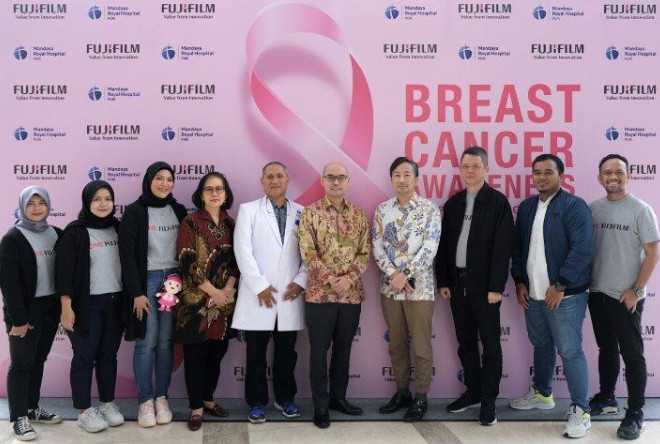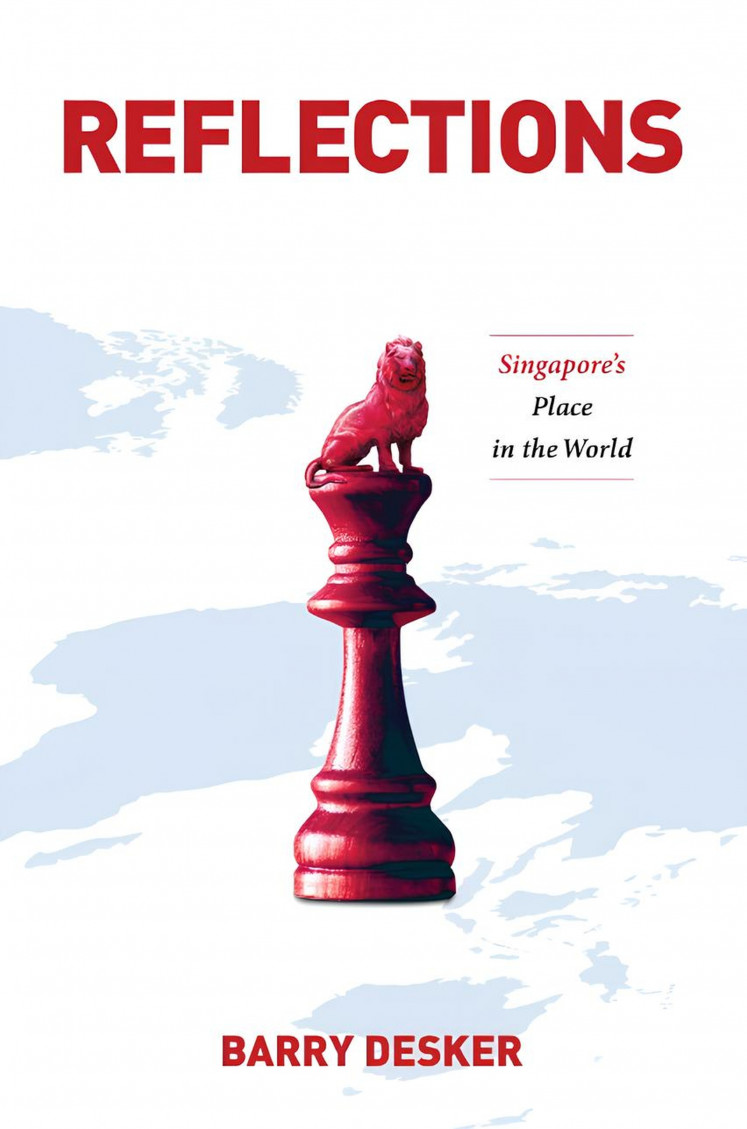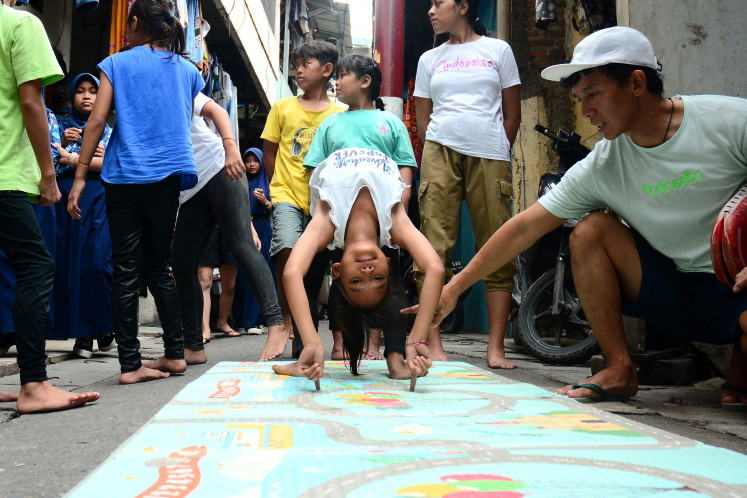Popular Reads
Top Results
Can't find what you're looking for?
View all search resultsPopular Reads
Top Results
Can't find what you're looking for?
View all search results70% of Breast Cancer Cases Detected at Advanced Stage
Change text size
Gift Premium Articles
to Anyone
M
any Indonesian women delay breast examinations due to fear and stigma. Through the technology and health education provided by PT Fujifilm Indonesia, it's time to eliminate hesitation and save more lives.
Seven out of 10 breast cancer cases in Indonesia are detected at an advanced stage of the disease. According to 2022 data from the Global Cancer Observatory, more than 400,000 new cancer cases were recorded in the country. For many women, their diagnosis comes when treatment options are already limited, but research shows that early detection can increase survival rates to as high as 98 percent.
Despite these alarming numbers, many women hesitate getting screened, or even avoid it altogether. Their reasons vary, from lack of awareness to social stigma and fear of the procedure itself. In many Indonesian communities, breast examinations are still considered taboo. Some women feel embarrassed, while others worry about becoming a burden to their families if diagnosed with a serious illness. Tragically, this hesitation leads to 70 percent of cases being detected only when the disease has already progressed.
In response to this challenge, Fujifilm Indonesia and MedicElle Clinic in Surabaya launched the "Cancer-Free Towards a Healthy Family" program, offering free 3D mammograms to 100 women. The screenings were conducted on Nov. 1-15 and their results were provided on Nov. 23, along with a health education session for patients.
For many women, fear of pain is one of the biggest reasons for avoiding mammograms. But due to advancements in medical technology, the procedure is now much more comfortable. Fujifilm Indonesia’s AI-powered digital mammography not only reduces discomfort, but also accelerates detection with high accuracy while minimizing radiation exposure.
"We believe health care is a fundamental right for everyone," said Masato Yamamoto, President Director of PT Fujifilm Indonesia.
"Fujifilm Indonesia is here, not only with technology but also as a committed partner in raising awareness about breast cancer. It’s heartbreaking that 70 percent of cases are detected too late. We want to change that by making screenings more accessible and less intimidating for women," he said.
Life-changing opportunity
Representatives of PT FUJIFILM Indonesia and Mandaya Royal Hospital Puri in Tangerang, Banten, join hands in offering a free mammogram service and breast cancer educationRatna Setyarahajoe is one of the many women who took part in this program. She appeared composed while sitting in the waiting room of MediElle Clinic, but she carried a quiet, deep anxiety. Her family history of cancer made her more aware of the risks.
"We often talk about breast cancer. I just want to make sure my body is healthy," she said, with a gentle smile.
After completing her mammography, Ratna shared her experience with enthusiasm: "It is so important to share this information. Many women still don’t understand the importance of regular breast checkups."
Inspired by her experience, she took it upon herself to encourage her coworkers to prioritize their health and get screened as well.
"I didn’t have to readjust my position, the equipment adapted to me. This made the whole process much easier. There was no awkwardness or excruciating pain like before," she said, expressing gratitude for Fujifilm Indonesia's advanced healthcare technology.
For Ratna and many other women, this program was more than just a free screening: It was an opportunity to take control of their health without fear. The presence of the all-female medical team at MediElle Clinic ensured a safe and comfortable environment, making for a more reassuring and empowering process.
Fujifilm Indonesia is taking this initiative beyond its collaboration with MedicElle Clinic, working with leading healthcare institutions nationwide to expand access to early detection. Some notable partnerships include Mandaya Royal Hospital Puri and Udayana University, where it is providing free screenings and health education to reach more women.
Handra Effendi, Director of PT Fujifilm Indonesia, emphasized the importance of collective action: "Collaboration with various stakeholders is a testament to our commitment to ensuring more women have access to early breast cancer detection.”
At its heart, early detection is not just about fighting cancer. It is about giving more women the chance to live healthier, fuller lives; it is about ensuring that no woman has to wait too long, fear too much or feel alone in their fight
Source: Fuji Film

